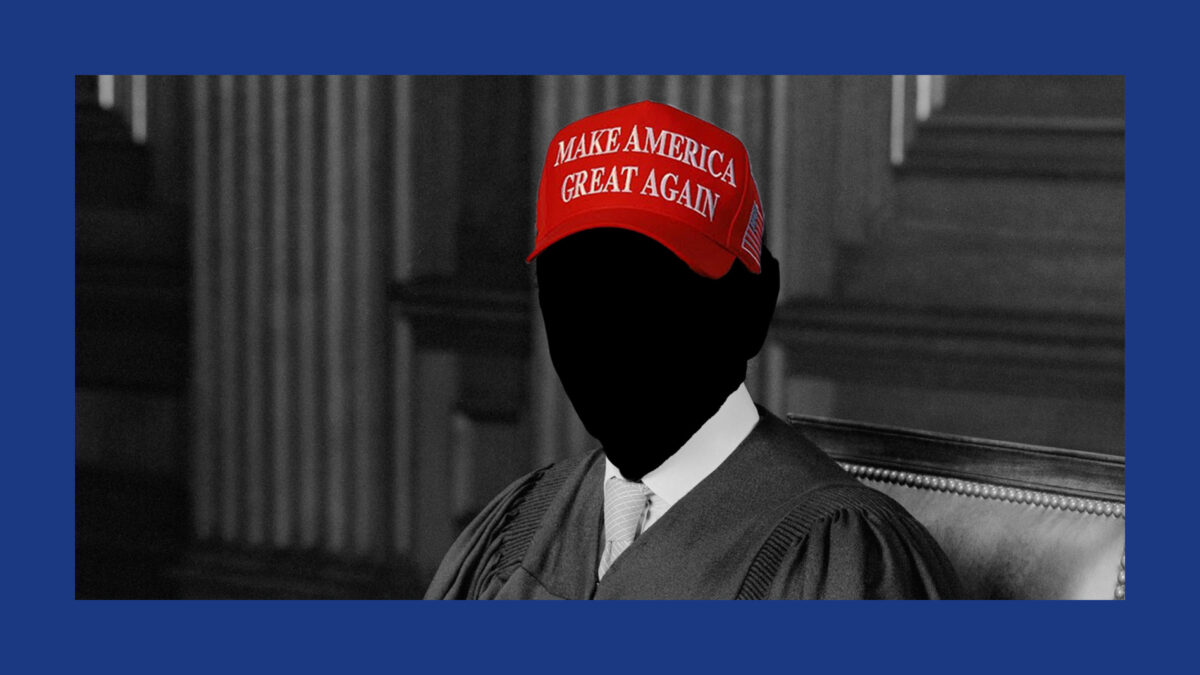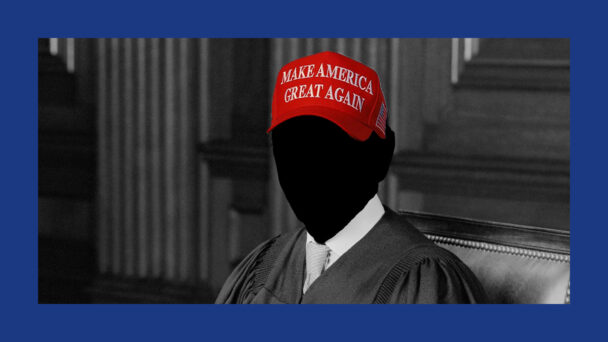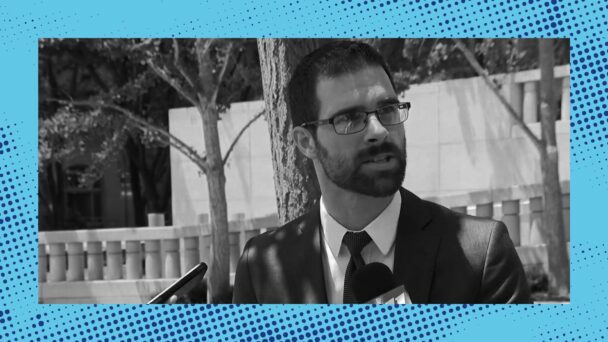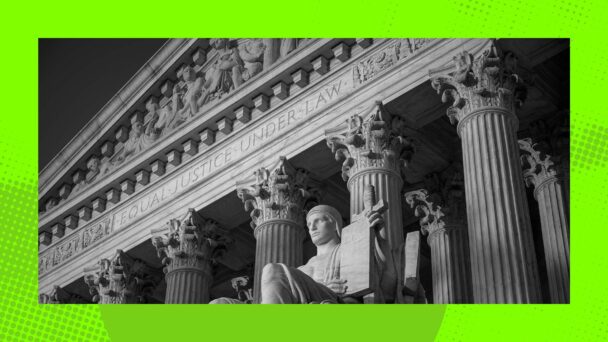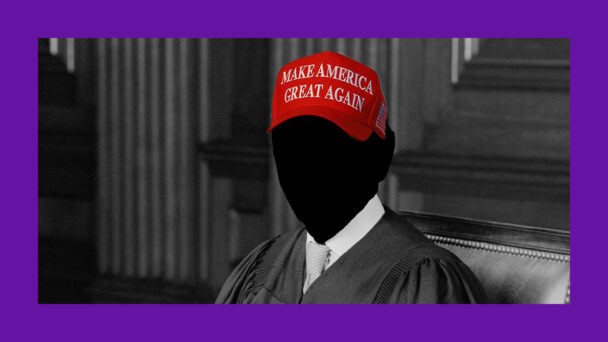In July, the Republican-controlled Senate confirmed the first five of President Donald Trump’s judicial nominees—a group that includes his most controversial nominee yet. Last week, four more nominees—including two more appeals court nominees—had their Senate Judiciary Committee hearings. As the Senate recesses for August, Trump’s judicial confirmation machine is going full speed ahead, and it’s every bit the horror show I predicted it would be.
Vacancies
In the last three months, only one judge has created a new vacancy: Montana District Judge Susan Watters, appointed by President Barack Obama in 2013, announced that she will take senior status in June 2026. Watters joins the outgoing Judge Dana Christensen, who informed the Biden White House in December 2022 that he would retire when the Senate confirmed a successor.
President Joe Biden tried to do that by nominating Danna Rae Jackson, who would have become Montana’s first Native American judge. But Jackson’s nomination was blocked by Montana’s Republican Senator Steve Daines. That nomination now goes to Trump instead.
In total, there are 47 current vacancies and 10 future vacancies, with 11 total nominees pending. Nine of those nominees have appeared before the Senate Judiciary Committee, and five have been advanced to the Senate floor. For comparative purposes, on August 1 of Biden’s first year in office, there were 84 current vacancies (with 22 nominees) and 31 future vacancies (with two nominees). Twenty-four more circuit judges and 43 district judges appointed by a Republican president are currently eligible to retire, if they want to allow Trump to name their successors.
Nominees
Trump announced four new nominees in July: Eric Tung to the Ninth Circuit, Joshua Dunlap to the First Circuit, Jennifer Mascott to the Third Circuit, and William Mercer, a former Montana Republican state representative, to the District of Montana.
Tung, 40, is a well-credentialed establishment conservative: a University of Chicago Law School grad who clerked for then-Judge Neil Gorsuch, Justice Antonin Scalia, and now-Justice Gorsuch again, and is now a partner at Trump-friendly firm Jones Day, where he often represents clients in the cryptocurrency industry. Tung is a self-described originalist: At a Federalist Society event just a few weeks ago, he said that the originalist answer to the question of “whether there’s a constitutional right to abortion, same-sex marriage, or sodomy” is “simple: No.”
Dunlap, 41, graduated from Pensacola Christian College, a Christian fundamentalist institution that, among other things, prohibits all physical contact between members of the opposite sex and blames Obama for “inciting a period of cultural decay.” (The school has mellowed a bit since Dunlap attended—women can now wear pants after 4:45 PM.) He went to Notre Dame Law School, where he was a member of the Federalist Society, and spent a summer interning for the Alliance Defending Freedom, an organization classified as an anti-LGBTQ hate group by the Southern Poverty Law Center.
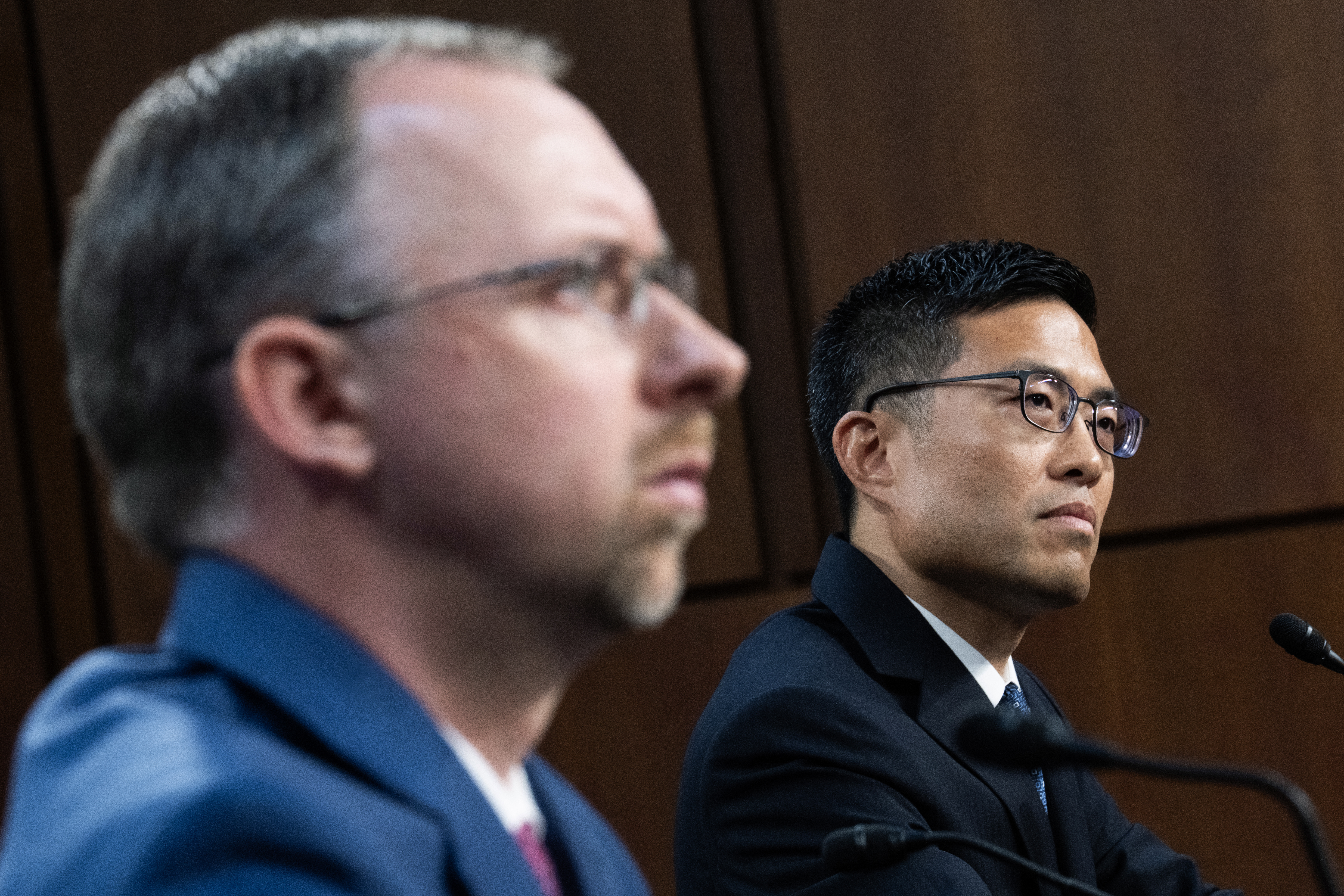
Eric Tung, right, and First Circuit nominee Joshua Dunlap testify during their Senate Judiciary Committee confirmation hearing, July 2025 (Tom Williams/CQ-Roll Call, Inc via Getty Images)
For all the red flags around Tung and Dunlap, at least they both live and have practiced law in the states where they have been nominated to serve. This is more than you can say for Trump’s latest Third Circuit nominee, Jennifer Mascott. Other than a beach house, Mascott has no connection to Delaware whatsoever; she is not admitted to practice there, and was only admitted to practice before the Third Circuit a few months ago.
But what Mascott does have in spades are MAGA conservative credentials and direct ties to Donald Trump. She clerked for then-Judge Kavanaugh on the D.C. Circuit and Justice Clarence Thomas on the Supreme Court. She taught at George Mason’s Scalia Law School and then at Catholic University Law School, where she founded the Separation of Powers Institute, which hosts events like “Is the Administrative State Morally Legitimate?” Towards the end of the first Trump administration, Mascott worked in the DOJ’s Office of Legal Counsel and helped with Justice Amy Coney Barrett’s confirmation. This time around, she joined the White House Counsel’s Office as Senior Counselor to the President.
Hearings
Four nominees testified at last week’s hearing. Tung and Dunlap appeared first, followed by Chad Meredith, whom Trump nominated to the Eastern District of Kentucky in June, and Mercer. These hearings don’t often reveal much, but there are two important trends worth noting.
The first is that Trump’s nominees appear to have been instructed that they’re free to give their legal views when asked by a Committee Republican, but need not answer any question asked by a Committee Democrat. For example, Utah Republican Senator Mike Lee posed a hypothetical to Tung about whether an unspecified agency regulation would be unconstitutional because it was neither a law passed by Congress nor signed by the president. Tung was quick to respond that it may violate the requirements of bicameralism and presentment, and perhaps also the nondelegation doctrine, a favorite tool of conservatives for gutting the power of federal agencies. Similarly, Louisiana Republican Senator John Neely Kennedy engaged in a prolonged back-and-forth with Meredith about the extent to which the First Amendment requires newspapers to let political candidates buy advertising.
But when California Democratic Senator Alex Padilla asked Tung about comments Tung made in 2004 while in college at Yale that he believed “in gender roles,” and that “radical feminists try to blur gender roles” and “undermine institutions like marriage,” Tung seemed hesitant: He claimed that his views on these “policy matters” and “sociological matters” were live issues and the subject of “wide debate,” and were therefore off limits. When Padilla pressed Tung repeatedly to identify the live issue “working its way through the judiciary” about which Tung was concerned, Tung said he “didn’t understand the question.”
Even when asked by multiple senators whether he agreed with his friend Mike Davis, a conservative legal activist who has tweeted about the dangers of the “Black underclass” and “evil” Democrats, all Tung could offer in response was that those were “not necessarily” his views and that he could not give us his views because it’s a “political issue.” Only when Kennedy followed up with the exact same question did Tung seem to understand that he could answer this question safely and acknowledge that he does not, in fact, believe Democrats are evil.
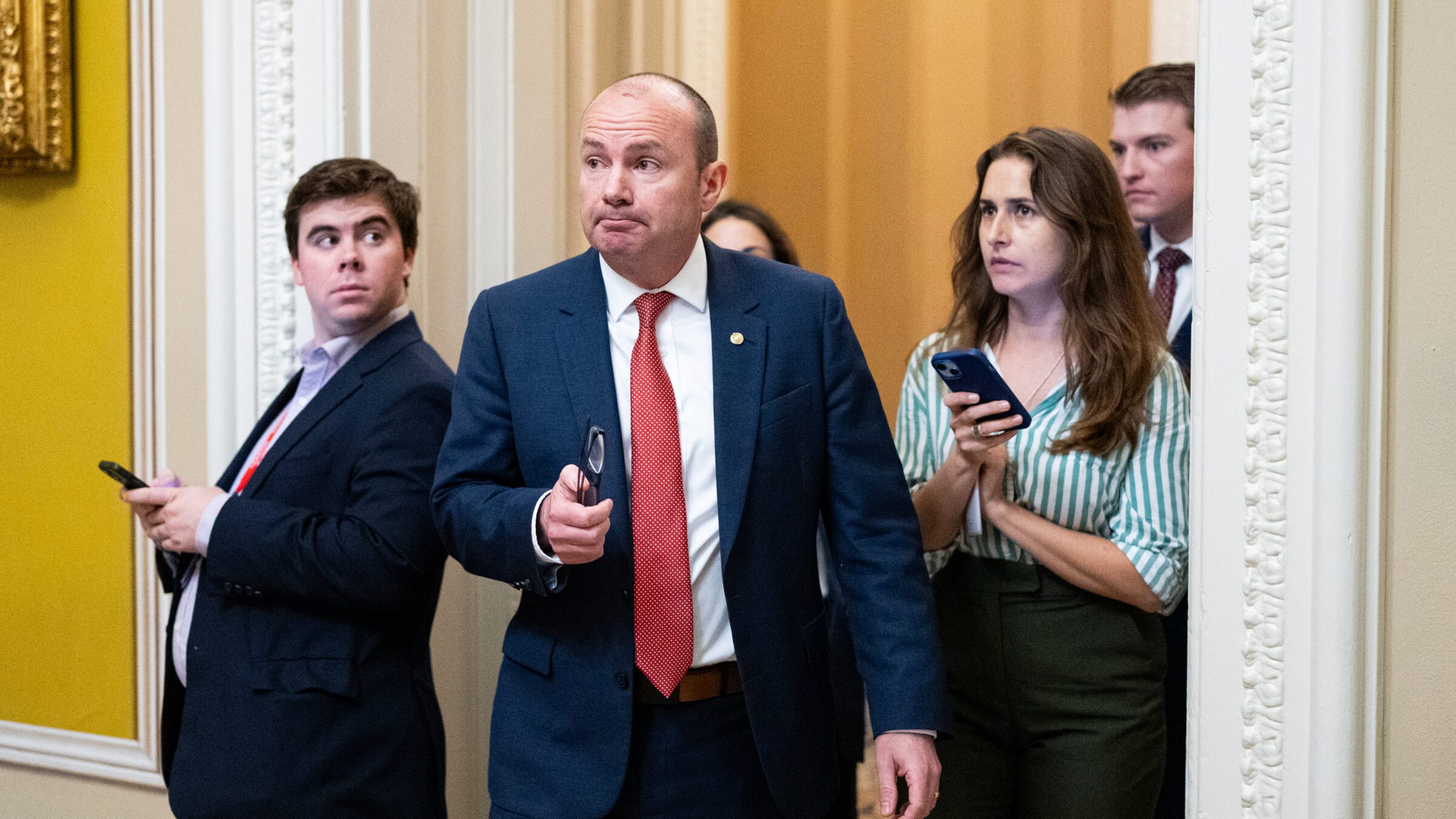
Senator Mike Lee at the U.S. Capitol, June 2025 (Bill Clark/CQ-Roll Call, Inc via Getty Images)
The second (and more troubling) trend is that Obergefell v. Hodges, the now decade-old Supreme Court decision recognizing a right to same-sex marriage, is squarely in the judiciary’s crosshairs. Several nominees were asked whether cases like Brown v. Board of Education, which held school segregation unconstitutional, and Loving v. Virginia, which struck down bans on interracial marriage, were correctly decided, and all agreed that they were. But when asked if the same was true of Obergefell, they all demurred. Tung said only that “the Supreme Court granted such a right.” Mercer described it as “binding precedent,” but said it wasn’t his job to “grade the Supreme Court.”
The implication of their careful treatment of Obergefell was clear to anyone listening: These nominees, like those during Trump’s first term who described Roe and Casey as “the law of the land” and “precedent on precedent,” are foaming at the mouth to undermine and eventually overturn Obergefell and relegate same-sex couples to second class status.
Confirmations
In July, Senate Republicans confirmed Whitney Hermandorfer to the Sixth Circuit, and Joshua Divine, Cristian Stevens, and Zachary Bluestone to Missouri district court seats. All the votes were along party lines, except for Divine’s, who garnered unwitting support from Maine Senator Angus King, an independent who caucasus with the Democrats. (King has since admitted that his vote was a mistake.)
Last Tuesday night, Senate Republicans confirmed Trump’s most controversial nominee yet: Emil Bove, his former personal defense attorney and current Department of Justice hatchetman, to the U.S. Court of Appeals for the Third Circuit. Republican Senators Lisa Murkowski of Alaska and Susan Collins of Maine joined all Democrats in voting against Bove.
For the 50 Republican Senators who voted for Bove, it didn’t matter that not one, not two, but at least three whistleblowers had corroborated claims of misconduct by Bove, including that Bove not only told DOJ attorneys to defy court orders, but then misled senators when questioned about it. Nor did it matter that over 900 former DOJ lawyers and over 80 former state and federal judges wrote letters opposing Bove’s nomination, citing his “egregious record of mistreating law enforcement officers, abusing power, and disregarding the law itself.” As a result, Bove will serve on the Third Circuit until Trump puts him on the Supreme Court, or until he’s impeached and prosecuted—at this point, it’s really anyone’s guess.
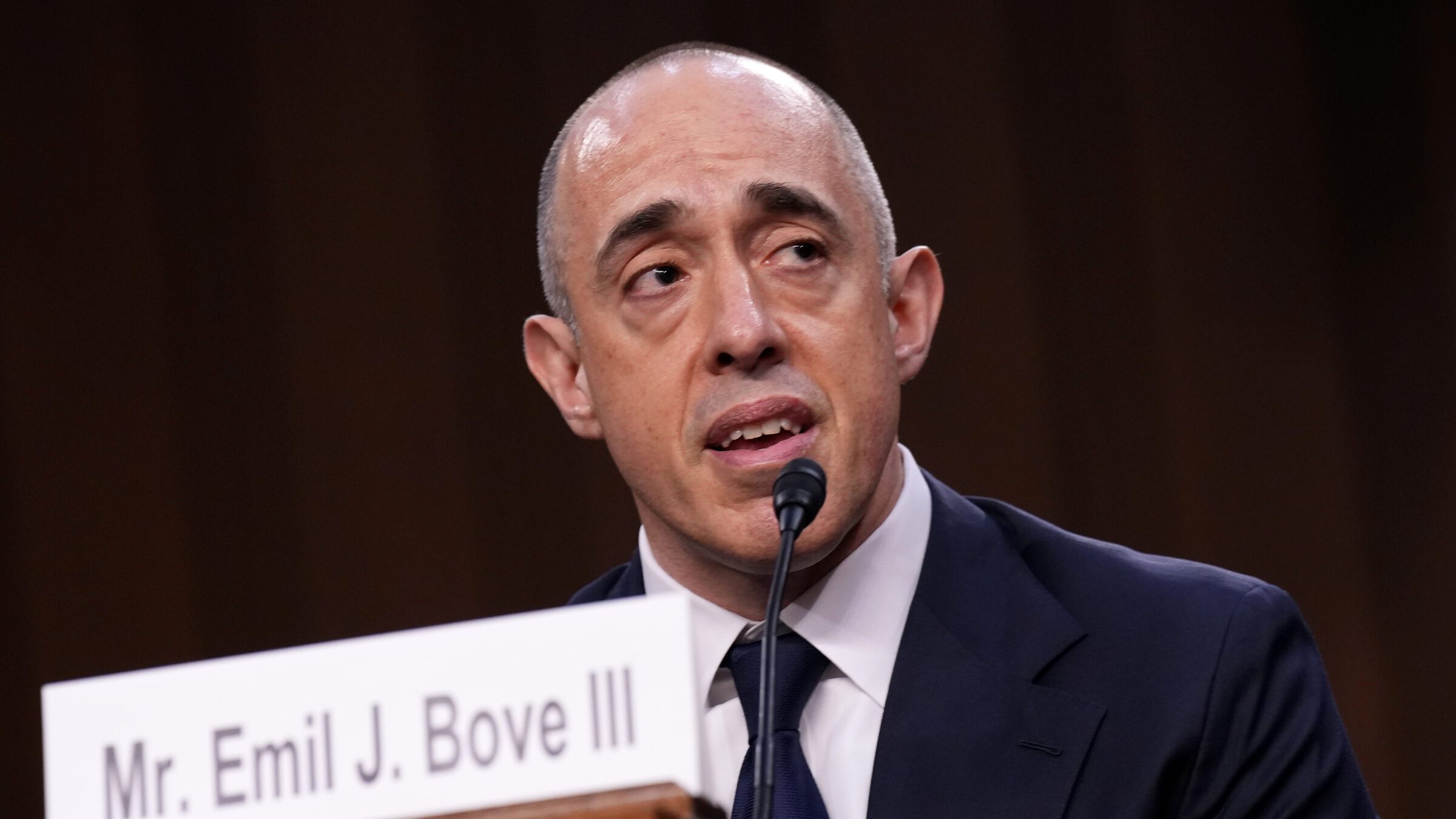
(Photo by Kevin Dietsch/Getty Images)
What’s Next
The Senate is now in recess until after Labor Day. No more judges will be confirmed in the meantime, but the White House can continue to announce nominations during that time—and according to reports, Trump has been interviewing candidates for Diane Sykes’s seat on the Seventh Circuit, which is the only court of appeals vacancy without a nominee. Only two nominees—Mascott and John Guard, a nominee to the Southern District of Florida—haven’t had their Judiciary Committee hearings yet. The nominees who had their hearings this week will likely advance to the Senate floor in mid-September.
As we wrap up the first six months of Trump 2.0, a few stats about Trump’s first 16 judicial nominees are worth highlighting. Demographically, it would be hard to find a less diverse group: Fifteen of 16 are white, 12 of 16 are male, and 11 of 16 are white men. Bove is arguably the most diverse one, as he’s the only nominee who’s never been a member of the Federalist Society. And once confirmed, they’re going to be around for a very long time: Their average age when nominated is around 43—several years below the average age of Trump’s first-term nominees.
Professionally, all are card-carrying movement conservatives. All five court of appeals nominees (and 12 of 16 nominees overall) clerked for a court of appeals judge. Three of five court of appeals nominees (and four of 16 overall) clerked for a Supreme Court justice. In all cases, the judge or justice was appointed by a Republican president. Eleven worked in some capacity in a Republican administration, often in a state solicitor general’s office.
In other words, to a greater extent than ever before, these nominees cut their teeth fighting right-wing culture wars. Now, they’ll get to keep doing the same from the comfort of the federal bench.
